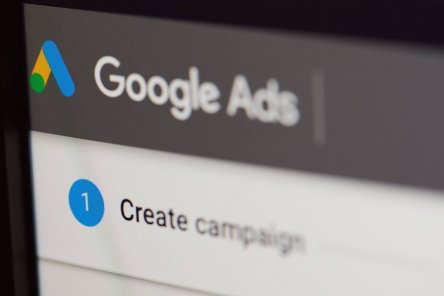Top 5 Tips for a Successful Recruitment Google Ads Campaign
Promoting your recruitment business through Google Ads is a great way to attract clients and find suitable candidates. It’s a platform that provides you with opportunities beyond what most social network sites can offer. While ads offer exciting possibilities, they also present challenges. Fortunately, once you successfully follow these tips, you can set up a recruitment Google Ads campaign that will be worth the cost and effort.
1. Identify the search terms your prospects are using
Your ability to master Google Ads depends on getting this task done right. In search ads, Google is the ultimate judge in choosing which ads to display to job seekers and employers based on various factors, such as:
- Quality score
- Relevancy score
- Monetary bid
You want to ensure that you’re utilising the search terms likely used by your target audience. It can be more challenging to build a recruitment keyword strategy than to do traditional sales. However, the same principles apply. First, you need to determine your prospect’s persona, including:
- Their browsing habits
- Search terms they used regularly
- Any of those terms relevant to your recruitment
Next, use tools such as the free Google Keyword Planner to determine which search terms to use in your campaigns.
2. Choose your keywords carefully
You’re not the only one using Google Ads. Most probably, large recruitment agencies with bigger budgets control the popular keywords since they can afford to pay higher cost-per-clicks (CPC). If you’re a small or start-up recruitment firm, you have almost no chance of outbidding them.
So what can you do?
You can choose the less competitive keywords, but it may not provide optimum results. You can determine how much cost-per-click you can afford based on your ROI (Return on Investment). Optimising your CPC can be a bit complicated compared to traditional sales.
Think of how much each successful hire is worth to you – financially, compare that with how many successful applicants you often obtain and how many applications you get per click. These figures will help determine the maximum cost that you can pay per click before the ROI becomes negative.
3. Make sure that your landing page is relevant
Optimising your CPC enables you to ensure that your recruitment goals are within budget. However, the frequency and amount of bids on every search and display network are not the only reasons for showing the ads. Search engines, such as Google also like to provide job seekers with content they will likely find relevant.
How does Google do that?
Search engines check not only the ad’s content but also the landing page where people are redirected to. For example, you bid high on a specific search term. However, you’ll likely get penalised if your ads are linked to landing pages with no relevance to the search terms you’re targeting.
To avoid suffering such a fate, make sure that your landing page has the appropriate keywords or search terms. For instance, you’re targeting specific candidates with the key phrase, ‘accountant jobs in London.’ The landing page should also incorporate the words ‘accountants,’ ‘jobs,’ and ‘London.’
This will encourage search engines to show your ads to more candidates. Also, create a landing page that will tell potential candidates what steps to take during the application process.
4. Create a suitable recruitment ad
It’s essential to make recruitment Google Ads that are relevant to your target candidates. The more relevant your ads are, the higher your ranking will be on search engine result pages.
Incorporating the right keywords in a search ad can be challenging. With display ads, you have more room for text. Your primary concern, however, is how to make them visually appealing and engaging. Meanwhile, sponsored posts allow you to use 30-characters for the headlines and two 90-character lines for the descriptions. You also have space for your display links. Despite the limited space, you’re expected to inform potential candidates about your
- Client’s brand
- Employee value proposition (EVP)
Include an explicit call-to-action to direct your audience to the next step. Make sure that both your ads and landing pages have the same keywords. By doing so, you can spread your client’s brand to more potential candidates and even build your talent pool in the process.
5. Track the progress of your ads
Succeeding in Google Ads can be a lengthy process of trial and error. Getting these ads right on the first try is rare, and they can become costly rather quickly. To ensure that you don’t go overboard, Google can provide you with conversion tracking tools. It will need a few lines of code embedded on your web pages.
You can track your conversions by the number of “thank you” pages generated after an application is submitted or candidate sign-ups for your recruitment material. While these kinds of tracking are crucial, many recruiters fail to implement such measures.
Conclusion
Google Ads can help your recruitment efforts. However, you must ensure that you’re using them correctly. This includes knowing and using the search terms often used by your target candidates. Since CPCs can be costly, avoid ‘expensive’ keywords and focus on the less competitive ones. However, calculating the estimated ROI for each keyword can help you gauge how much you’re willing to bid. Also, both the landing pages and ads should be relevant to each other. Finally, you must track the progress of your ads.
As mentioned before, crafting suitable Google Ads often takes time and effort. However, you can shorten that process by reaching out to us here at Recruitment Traffic. We can help you find the right keywords and craft your Google Ads. Please contact us today.
Drive Your Recruitment Business Towards The Best Results.
Talk to us about how we can help.






